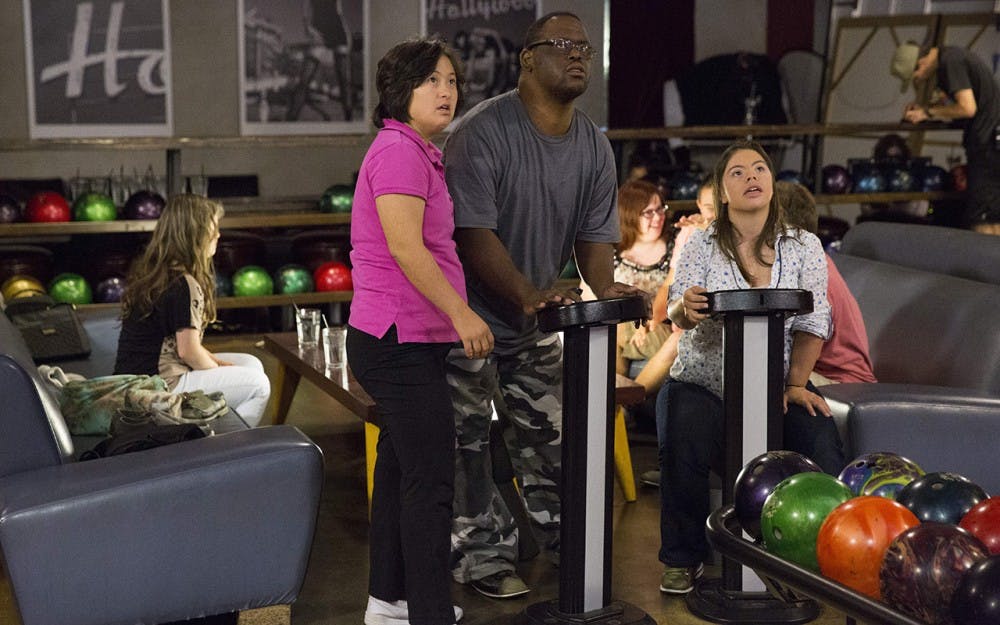Lately, the TV industry is pushing for more diverse shows and casts. But what may come as a surprise is that the industry has been limiting a prominent and growing population — individuals with disabilities — who make up about 15 percent of the world’s population, according to the World Health Organization’s current statistics on disabilities.
Individuals with disabilities and the actors who portray them in the media have come a long way throughout the course of history. From Lennie in “Of Mice and Men” to Forrest in “Forrest Gump,” television and movies often portray characters with disabilities as dumb and limited — incapable of living a fulfilled life as able-bodied people are.
The same goes for television of the past. Shows portrayed people with disabilities as dependent, unable to adjust and contribute fully to society. The ratification of the Americans with Disabilities Act of 1990, which prohibits discrimination and ensures equal opportunity for them to work, created a shift in understanding and how to portray people with disabilities on television – but the improvements only went so far.
Last summer, the Ruderman Family Foundation, which advocates for inclusion of people with disabilites in the media, found that the population is still incredibly underrepresented in television. Those disabled roles that exist are mostly played by actors without any disability at all. In fact, after investigating the top 10 television shows in 2015 and 2016 and the top 21 shows on streaming platforms, the study found 95 percent of the characters with disabilities were played by able-bodied actors.
Probably one of the most well-known shows from a few years back that illustrates this finding is “Glee.” Artie Abrams is played by Kevin McHale, an able-bodied actor. The show regularly focuses on Artie’s disability as being a terrible detriment and included episodes discussing how he feels confined to his wheelchair. One Christmas episode shows a cheerleader, Brittany, asking Santa for Artie to have the ability to walk again, but she is disappointed to find out that even some miracles are out of Santa’s reach.
In another episode, Artie wishes he could dance with the rest of his friends, so he dreams someone will “cure” him so he can join in on the fun. “Glee” is known for having a quirky and diverse cast, but the show focuses much more on Artie’s disability than his abilities and personality and ultimately portrayed him as depressed and limited.
Two shows that moved toward accurate portrayal and inclusion were “Parenthood” and “Breaking Bad.” “Parenthood” followed the Braverman family and their adjustment to learning that their son, Max, had Asperger’s syndrome, known as Autism Spectrum Disorder today. Although the actor playing Max, Max Burkholder, did not have ASD, he spent a great deal of time researching, speaking with activists and even getting involved with the advocacy organization Autism Speaks to get a better grasp of what it means to have ASD.
Burkholder worked with professionals who specialize in ASD, and he also consulted with director Jason Katims, whose son is autistic. “Parenthood” may have used an able-bodied actor to portray a person with disabilities, but at least they did the research to ensure his acting was as closest to real life as possible.
“Breaking Bad” took a step in the right direction by casting R.J. Mitte to play Walt Jr., the son of criminal Walter White. While Mitte has cerebral palsy in real life, he said in an interview with “The Daily Mail” that he had to pretend his disability was more severe by using crutches and using less verbal ability than he has in reality. Although his character had some physical limitations, Walt Jr. doesn’t let that stop him from being a normal teenager, whether it be begging his dad to teach him how to drive or giving him attitude for his terrible cooking.
While Mitte’s role was rather small, “Breaking Bad’s” portrayal paved the way for shows using actors with disabilities in larger roles. “Born This Way” is a reality TV show that follows seven young adults with Down syndrome through finding love, jobs and friendships. This show gives an honest and non-biased look at how people with Down syndrome see the world and adjust to society.
One episode follows a woman as she tells her family she wants to get married and have kids one day, and another focuses on a man as he pursues his rap career by recording an album. The show also includes interviews with each of the individuals and their family members so the viewers can get a real grasp on what their lives are really like. The show very much focuses on their disability and how it affects their daily lives, but it is a true and accurate portrayal overall.
Last but not least, “Speechless” is the true embodiment of the future of actors with disabilities on television. JJ DiMeo, played by Micah Fowler, has cerebral palsy and uses a wheelchair, but he does not let that get in his way of all that adolescence has to offer him. While his character is nonverbal and uses a laser pointer to communicate with others, Fowler does have more verbal abilities in real life. Despite that, “Speechless” illustrates a much larger goal that all individuals with disabilities aim to accomplish — to be completely accepted and included with the rest of the able-bodied community.
DiMeo is one of the main characters alongside the rest of his family, but the focus is never solely on his disability. With the help of his one-on-one aid, DiMeo plays board games, attends choir practice and even has secret handshakes with each of his friends and teachers at school. “Speechless” has already made great strides in accurately portraying people with disabilities. It is the type of show that will hopefully set the framework for future shows that will include the ever-growing population of those with disabilities.




